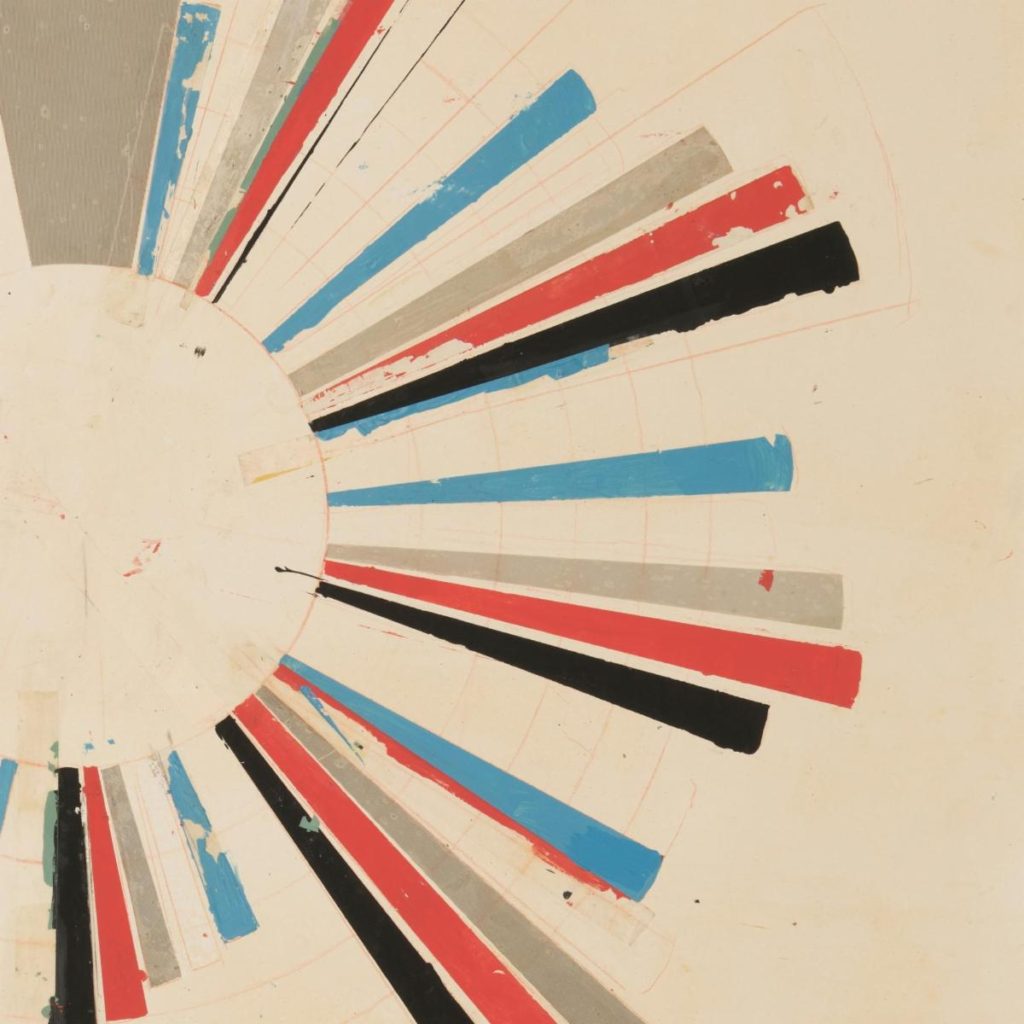Indistinct Conversations sounds like being set adrift. Beginning with the aptly named “Diaphanous,” singer and guitarist Elizabeth Powell creates a hazy dream world of guitar and murmured, stream-of-consciousness vocals, surrounded by echoes of overheard conversations. It’s the sound of an introvert at a party, withdrawing into the cocoon of their thoughts while the people around them chatter.
Indistinct Conversations is Land of Talk’s fourth LP, and the first after the intensely turbulent creation of 2017’s Life After Youth, during which Powell’s father had a massive stroke and Powell contemplated giving up music entirely. The new album is a dreamier, more acoustic-driven work than prior Land of Talk releases; it was produced with drummer Mark “Bucky” Wheaton and bass player Chris McCarron in Wheaton’s home studio, and has the intimacy of a private document. The songs were created as a therapeutic space where Powell could retreat from the world.

Sometimes, that retreat became very literal. Powell wrote “Footnotes” while hiding from an enraged neighbor. “I locked myself in my house after he ripped up my fence by the cover of night,” Powell recounts. “He and his goons would always end up harassing me, and skulking outside in my back driveway, and just being generally disgusting. I wound up being scared to leave my house that day and wrote ‘Footnotes,’ just losing myself in the repetitive, meditative guitar parts. I think I played that for six hours just to put myself in a trance state and not panic.” The song, in which jarring lyrics about “your psychotic thoughts” peek jaggedly out of a cheery, propulsive wall of guitar fuzz, is one of the album’s most striking juxtapositions.
Yet Indistinct Conversations is not an album of numbing out. By drawing back into their interior world, Powell was able to emerge with a stronger sense of self — and more willingness to confront the oppressive structures of the world. “I was tired of saying something and having those feelings invalidated — like, actual, real lived-in experiences that you do not need someone to eye-roll or belittle. I just got sick of it,” Powell says. “I’m obviously not alone because there’s a whole movement that’s getting a lot louder. I think I have to go back to the drawing board and figure out how I’m supposed to articulate myself now and stand in my power. I’m just realizing that I’m allowed to have a voice.”
This process included embracing their identity as a non-binary femme, who uses the pronouns she/they — “When I was younger, I didn’t even understand what a gender binary was. I just felt sort of confused my whole life. So now my mind is blown” — and engaging directly with the trauma inflicted on them as a “woman-presenting human.” Powell describes the album’s first single, “Weight of That Weekend,” as “a recognition of having been on the receiving end of a lifetime of sexual coercion, assault, boundary violations, and subsequent gaslighting.” The song begins with an invocation of abusers who “make me think I don’t understand how I’m feeling,” rising through dreamy summer-twilight balladry and unexpectedly symphonic horns to become “a prayer for love.”
On “Weight of That Weekend,” as on many other songs throughout Indistinct Conversations, Powell found themself literally using their voice in a new way — including the guitar, which they call their “first voice.” While writing the album, they switched to playing acoustic guitar; an effort, ironically, to take up less space (“I was subletting a place with paper thin walls,” she says), which radically shifted the way their songs were structured. Powell credits the album’s sonic adventurousness to Wheaton, who “pulled me out of premature retirement.”

“All my ideas are just farts in the wind if Bucky isn’t there to document them,” Powell says. “We weren’t starting from the loud guitar setting the tone. It was more like, ‘oh, the acoustic guitar will be a bed track, and we’ll see what the song asks for as we’re recording it.’ Those horns? That’s Bucky, with all his jazz friends. He would get Pietro Amato, who plays French horn, and also plays keys for us in our live shows. He would get Erik Hove to come over and just play some flute. Like, that’s stuff that I never would have thought of alone.”
As Powell stepped into a more authentic sense of self, they increasingly felt comfortable saying more with less, cutting whole swaths of lyrics down to oblique, minimal statements and dropping to a more low-key, almost speak-singing style inspired by Kurt Vile, Courtney Barnett, or Bill Callahan. “I used to think that as a ‘female vocalist,’ as a ‘female singer,’ like…‘gotta sing high! You’ve really got to blow your load in the chorus and show people how high you can go,’” Powell explains. “Now it’s like, What if I get to the chorus and I don’t feel like singing? What if I just kind of want to get something across in very few words? This record is me being a lot more true to what I want to say and how I would want to hear it, not really trying to cater to any preconceived notions of what a woman is ‘supposed’ to sound like.”
That radical self-acceptance, the ability to speak in one’s own voice, is the hallmark of Indistinct Conversations. “I know I’m a dope guitar player. I know I write really unorthodox stuff. I have a really distinctive guitar voice. I don’t need to rip around Eddie Van Halen-ing it,” Powell says. “I don’t need to be anything but what I want to be.” By digging deep, Powell has found a certainty we all deserve: the realization that their own voice is enough.


